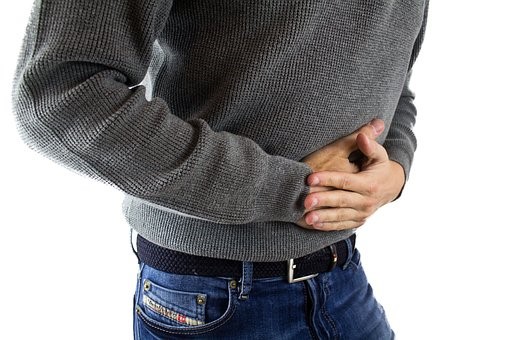
Millions of Americans suffer from some form of gastrointestinal disorder. In fact, as many as 45 million Americans have irritable bowel syndrome. There are many different kinds of GI disorders—and different ways to treat them. It can be a painful and disruptive way to live, and people often suffer for years without realizing the real source of the problem is digestive in nature. If you are experiencing chronic heartburn, bowel discomfort, persistent diarrhea, or severe cramping, you may have a serious digestive problem and should consult your doctor.
If you are someone who experiences digestive ailments, know there are plenty of ways to effectively address them through diet, exercise, and other natural methods. Gut health plays a critical role in our overall well-being, so making sure you take the steps to optimize your digestive health is imperative. Here are some common ailments, as well as strategies that can help alleviate the associated symptoms.
Dysbiosis
When harmful bacteria is dominant in the GI tract, the gut is in a state of imbalance, also known as dysbiosis. While the optimal solution is to achieve balance between beneficial and harmful bacteria, it can be a problematic situation for many people. Bloating is one of the more unpleasant symptoms, but this can be treated with probiotics.[1]
Acid reflux
Acid reflux is a condition in which stomach acid backs up into the esophagus, causing severe discomfort and, over time, damage to the esophagus.[2] Other symptoms include nausea, chest pain, tooth erosion, bad breath, and trouble breathing or swallowing. There are a number of approaches a patient can implement, including weight loss, not overeating, emphasizing low-carb foods (which inhibits bacterial overgrowth caused by undigested carbs), minimizing carbonated drinks, and limiting alcohol and coffee intake.
Crohn’s disease
Crohn’s Disease is an inflammatory bowel condition thought to be caused by family history and genetics, though the precise causes are unknown. It’s a painful condition with symptoms that may include diarrhea, rectal bleeding, fever, weight loss, and abdominal pain. While anti-inflammatories are typically used to treat Crohn’s, there are several natural approaches that have worked for Crohn’s sufferers. Wild oregano oil is sometimes used to get rid of disease-causing bacteria and viruses, while probiotics can be helpful, taken in amounts high enough to have a therapeutic effect.[3]
Irritable bowel syndrome
IBS is a common problem among Americans, who may experience diarrhea, painful dry stools, or loose stools. Bloating is another problem commonly associated with IBS which, as mentioned, can be treated with probiotics found in live yogurt. Symptoms are generally treated through diet—with an emphasis on low-fat, high-fiber foods—and by avoiding dairy, alcohol, caffeine, and foods that tend to produce gas.
Diverticulitis
Diverticulitis is caused by small pouches formed in the colon. The condition occurs when these pouches become inflamed, which can cause severe abdominal pain and fever.[4] Since obesity is considered a major risk factor, exercise is usually indicated as a form of treatment. A severe attack may require treatment with antibiotics and a liquid diet that allows the colon to heal. This can also help prevent the need for surgery to treat or remove the impacted portion of the colon. Dietary modifications include an increase in vegetables, legumes, and whole grains.
Gallstones
Gallstones are hard deposits that form in the gallbladder, an organ involved in digestion. There are about 1 million new cases of gallstones diagnosed each year in the United States, according to the American Gastroenterological Association.[5] It’s a condition associated with high amounts of cholesterol or excessive waste in the patient’s bile.
Some gallstone patients have success treating gallstones by drinking apple juice or using apple cider vinegar to cleanse the system. Milk thistle, which is available in pill form, may also be effective in treating gallstones naturally. Studies have shown that regular exercise, such as running or walking, can help prevent the development of gallstones.
The millions of Americans who live with some form of intestinal disorder struggle with unpredictable pain and digestive problems. They are manageable conditions that are difficult to cure. However, a combination of natural treatment methods, diet, and exercise can make a significant difference for patients.
Henry Moore is the co-creator of FitWellTraveler. The site blends two of his favorite subjects (travel and health) to provide readers with information about how to get the most out of both.
References:
[1] https://plexusworldwide.com/sunnyshare/trust-your-gut/probiotics-bloating
[2] https://www.medicalnewstoday.com/articles/146619.php
[3] https://www.healthline.com/health/crohns-disease/alternative-treatments
[4] https://www.mayoclinic.org/diseases-conditions/diverticulitis/symptoms-causes/syc-20371758
[5] https://www.gastro.org/practice-guidance/gi-patient-center/conditions
